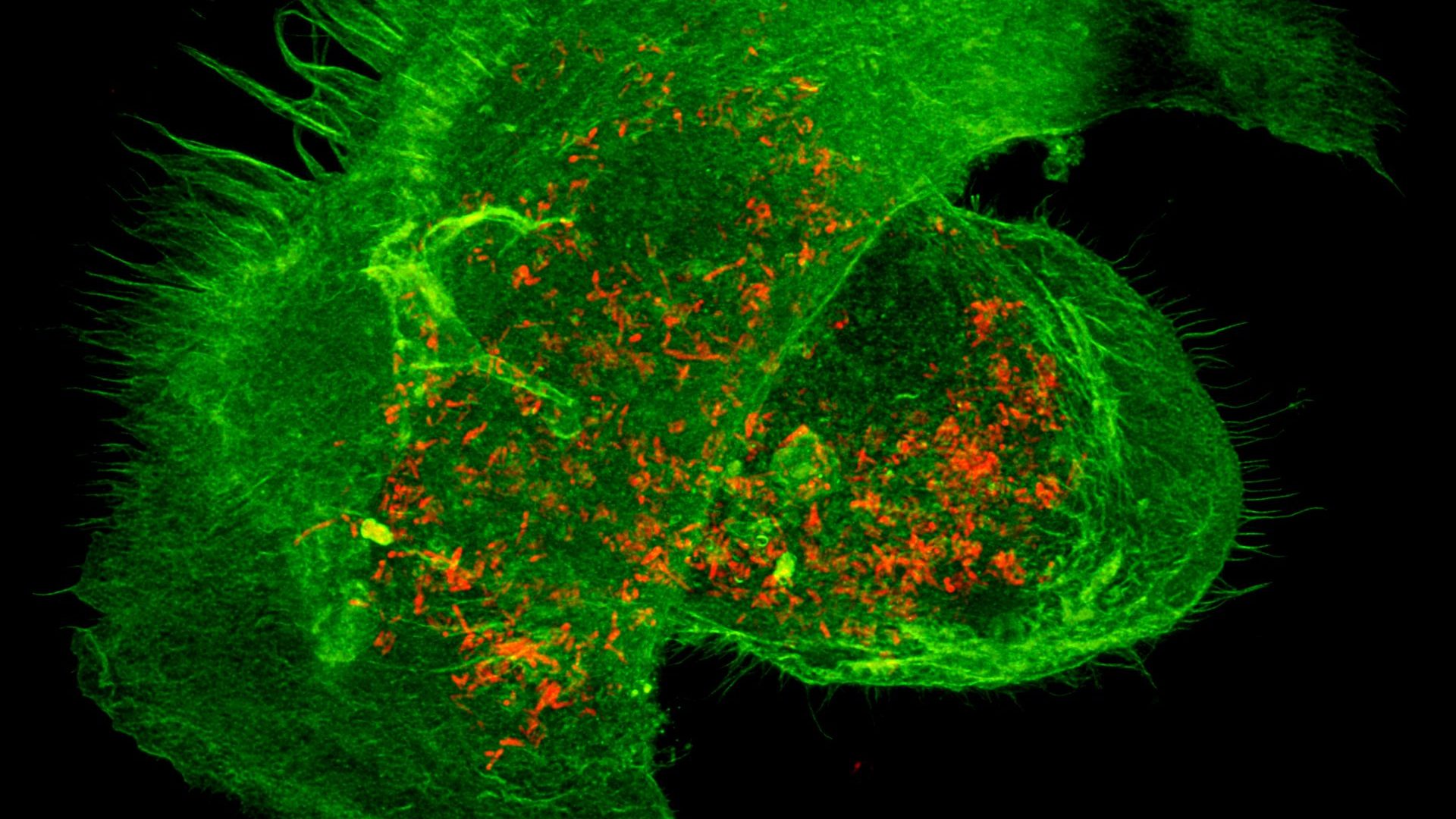Immune Evasion

Mycobacterium abscessus (Mab), a multi-drug-resistant pathogen, poses a growing health threat, causing pulmonary, difficult-to-treat infection, particularly in patients with cystic fibrosis, as well as in immunocompromised and elderly immunocompetent individuals.
Normally, when pathogens enter the body, macrophages act as first-line defenders by engulfing the bacteria and triggering an immune response. They do this by producing inflammatory signals and presenting pathogen antigens to T-cells, which are crucial for mounting a targeted immune response to eradicate the infection. However, certain bacteria, such as Mab, have developed sophisticated strategies to evade these mechanisms, allowing pathogens to establish a protected niche within macrophages, where they can survive and replicate undisturbed. This ability to persist within macrophages contributes to the establishment of a chronic infection, making treatment particularly challenging.
Our research aims to understand how the human immune system responds to Mab infection, focusing on the ability of infected macrophages to activate other immune cells and mount an effective response. By identifying the mechanisms involved in Mab immune evasion, we seek to uncover new therapeutic strategies that enhance immune recognition and clearance of this pathogen, ultimately improving treatment options for affected patients.
The team working on the project
The sponsors of the project





